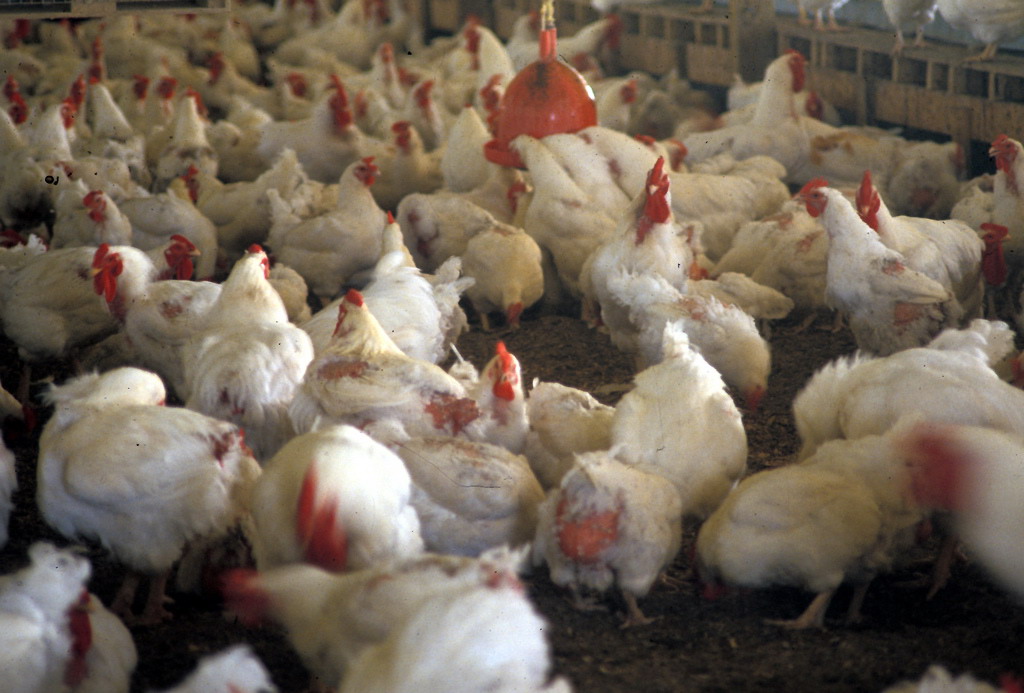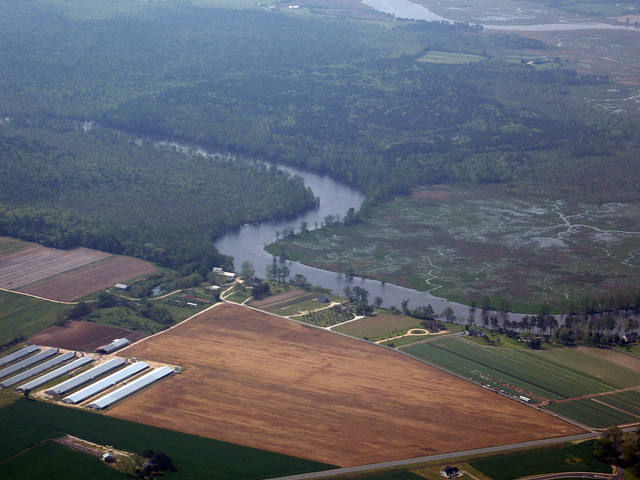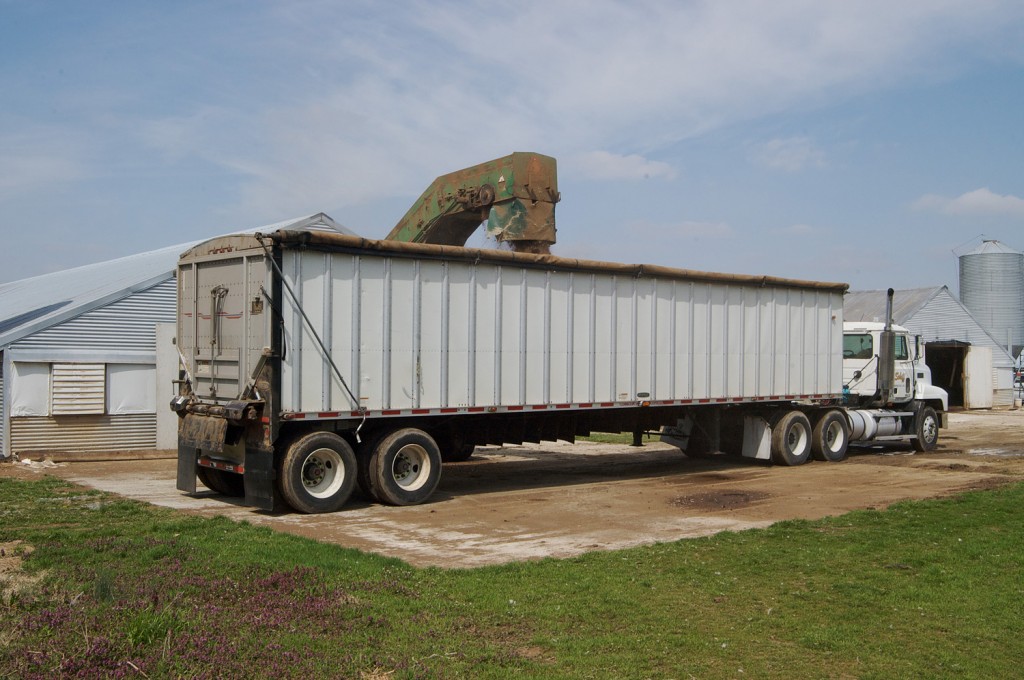Rascovar Commentary: Chicken manure lawsuit a teachable moment for UMd law school
MarylandReporter.com welcomes Barry Rascovar as a regular contributor. We have been linking to his columns in the daily roundup for years, but we will be publishing his columns simultaneously with his own blog, PoliticalMaryland.com. Rascovar has been reporting and commenting on Maryland and national politics and government since 1971, first for the Baltimore Sun, then the Gazette of Politics and Business and The Community Times.
In the future, we hope to add commentary from other writers, from the right, left and center, in addition to the many editorials and op-eds we link to in the daily State Roundup.
By Barry Rascovar
Special to MarylandReporter.com
The sad saga of the Hudson Family farm continues.
You remember the Hudsons, who raise Cornish hens for Perdue and also a herd of beef cattle on 300 acres near Berlin on Maryland’s Lower Eastern Shore.
Alan and Kristin Hudson got sued by the New York-based Waterkeeper Alliance, which hoped to win a landmark case holding Perdue liable for water pollution in drainage ditches caused by chicken manure from a subcontractor like the Hudsons.
The plaintiffs, represented in part by the University of Maryland’s Environmental Law Clinic, embarrassed themselves. It was such a botched job that it makes an ideal case study (perhaps at the rival University of Baltimore Law School).
Now comes the sequel: The federal judge who threw out the Waterkeeper case with critical comments about the poor quality of attorney work has now denied Perdue and the Hudsons $3 million in legal fees.
But in doing so, U.S. District Senior Judge William Nickerson pounded the law clinic and environmental group once again. He said their lawyers presented a weak case; they intentionally misled the public in statements to the media; settlement efforts were insincere, and their terrible pre-trial preparation led to defeat in court.
If ever there was a teachable moment for law school students, this is it.
Missed Opportunities
Here’s what Judge Nickerson had to say:
“Plaintiff only needed to establish that Hudson’s chickens contributed in some way to the high levels of pollutants coming off the farm and ultimately entering the Pocomoke River.” But the Waterkeeper lawyers missed that chance by “the lack of sufficient and appropriate sampling and testing.” Such an elemental mistake, the judge concluded, made it impossible to tell if the chickens or the cows caused the water pollution.
When the clinic’s legal team switched tactics and tried to blame bacterial pollution on “chicken dust” from exhaust fans in the chicken houses, it again failed to take samples. The judge wrote in a biting commentary, “One is left to ponder why Plaintiff failed to conduct the testing that, at least in hindsight, seems so obviously necessary and critical to the proof of its claim.”
This, according to the judge, was a key “tactical misjudgment.”
The case turned, in his view, on the Waterkeeper and law clinic lawyers’ “failure to properly prepare its case by conducting the necessary sampling.”
In a classic judicial understatement, Judge Nickerson added, “In this Court’s view, Plaintiff’s claim was not pursued or litigated as well as it could have been.”
Put in more common terms, it was a royal screw-up.
Yet because the case wasn’t frivolous or unreasonable, the judge decided punitive payment of legal fees should not be assessed.
Judge Nickerson was especially upset about the Waterkeeper and law clinic attorneys’ handling of pre-trial settlement talks. He looked at all the negotiating documents and concluded litigators were “not seriously working to settle this matter.” Indeed, they demanded more concessions from Perdue than they could have gained in court, according to the judge.
They rejected a Perdue offer to jointly fund an educational institution to study agriculture-related issues. As a result of the Waterkeeper’s hostile action, Perdue also ended a clean waters initiative to help chicken farmers become better environmental stewards.
With considerable sadness the judge wrote, “It is disappointing that no agreement that could have actually benefitted the Chesapeake Bay came from these negotiations. . . . It is most unfortunate that so much time and so many resources were expended on this action that accomplished so little.”
The non-diplomatic version: What a pathetic effort and what a waste of time and money that could have been put toward cleaning up the bay.
On to Annapolis
That’s not the end, though.
The Hudsons’ lawyer says he will go before the state Board of Public Works demanding reimbursement for legal fees.
There’s $300,000 in the state budget because of the law clinic’s questionable involvement in prosecuting (critics use the word “persecuting”) the Hudsons. Gov. Martin O’Malley got so angry he wrote to the law school dean about the propriety of such partisan educational activity.
Enraged rural legislators also tacked another $250,000 onto the budget for the University of Maryland to start an agricultural law clinic or advisory group to “assist farmers in the state with estates and trusts issues, compliance with environmental laws and other matters necessary to preserve family farms.”
Clearly, the law clinic’s ill-fated representation of the Waterkeeper Alliance in going after Eastern Shore chicken farmers has generated widespread State House skepticism.
When the reimbursement issue comes before the board, pointed questions will almost surely be directed at the law clinic and the University of Maryland, Baltimore’s president.
This unfortunate judicial episode could have and should have been avoided. It is proving costly to taxpayers and deeply embarrassing to the law clinic.
It’s time to move on, if only leaders at the law school can put their personal and professional egos aside long enough to find an even-handed way to teach students about both sides of environmental law.
Barry Rascovar can be reached at [email protected], or post a comment on www.politicalmaryland.com this site.

MarylandReporter.com is a daily news website produced by journalists committed to making state government as open, transparent, accountable and responsive as possible – in deed, not just in promise. We believe the people who pay for this government are entitled to have their money spent in an efficient and effective way, and that they are entitled to keep as much of their hard-earned dollars as they possibly can.




